I’ve been rereading David Foster Wallace’s magnum opus, Infinite Jest, I have an ebook of the 20th Anniversary Edition. I read the first edition when it came out, in 1995. I was still drinking and smoking pot then. But the Infinite Jest makes sobriety seem both feasible and cool and interesting—and it was one of the things that influenced me to stop drinking and getting high in 1996, a few months after I first read it.
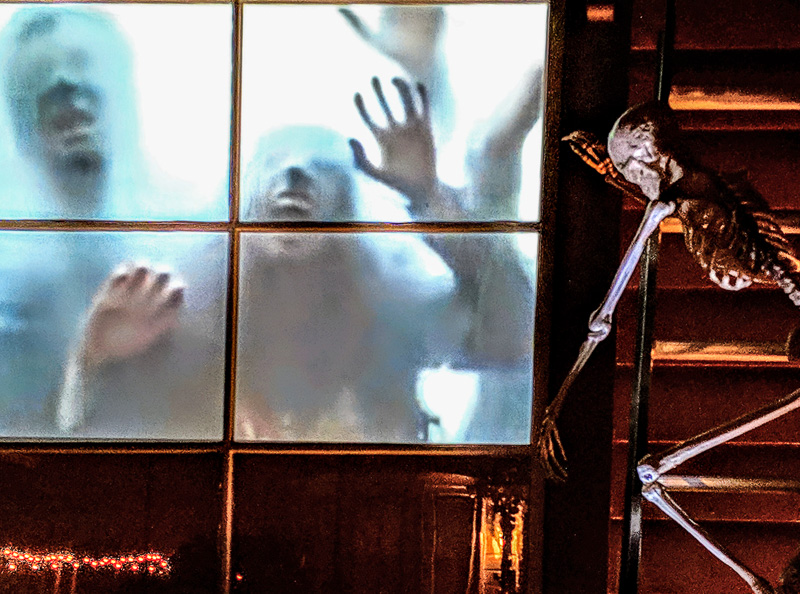
While reading the novel, I tend to skip about half of the sections and focus on what I consider to be the “good stuff,” that is, the parts about the recovering addict Don Gately. He’s one of various threads in the novel, with three other threads being a pot-smoking tennis player Hal Incandanza, a disfigured Southern beauty and underground radio personality and crack addict Joelle van Dyne, and this terrorist French-Canadian Marathe who’s in a wheelchair and is trying to get hold of a movie by Incandenza Senior that you can’t stop watching. The movie might be kind of a metaphor for drug addiction.
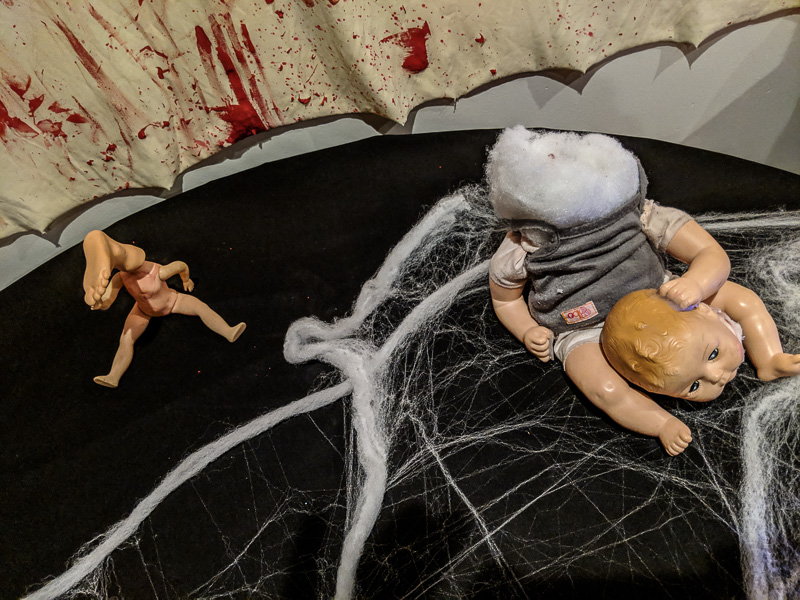
It’s very hard to navigate Infinite Jest, as the given table of contents is, well, willfully screw-you stupid. It’s mostly just made-up names of years, and gives you almost no guidance. I found a really useful description of the sections online by Steve Russillo…scroll down the page that pops up (and there’s other useful links on this page).

This time around, Fall/Winter 2018, I read Infinite Jest on a Kindle, which in some ways is good, as I can make the font big, and I can highlight memorable passages to save. The Search function on the Kindle Paperwhile kind of eats it, as it just dumps out whatever, a thousand hits, for, like, the name Gately. Supposedly there’s an “X-Ray” function, but I only saw it working once on Infinite Jest in my life, and that was for about ten seconds. To focus on my man Gately, I just kept going back to a print out of Steve Rusillo’s descriptive table of contents, and deducing what page he was next on, and using the Kindle Go To | Page dialog.

Anyway, here’s some passages I happened to flag because I thought they were interesting or fun. And keep in mind that my highlights are skewed by my personal interests and obsessions, and that someone else might select out a complete different set—Infinite Jest is an exceedingly rich and in-my-father’s-house-are-many-mansions-type book. The print book’s page number appears at the start of each passage. And, Wallace style, I’ve squeezed in a few italicized comments here and there.
And as usual, I’ve spaced out the text with a bunch of my photos.
Excerpts
19. A guy waiting to score pot. The insect on the shelf was back. It didn’t seem to do anything. It just came out of the hole in the girder onto the edge of the steel shelf and sat there. After a while it would disappear back into the hole in the girder, and he was pretty sure it didn’t do anything in there either. He felt similar to the insect inside the girder his shelf was connected to, but was not sure just how he was similar.
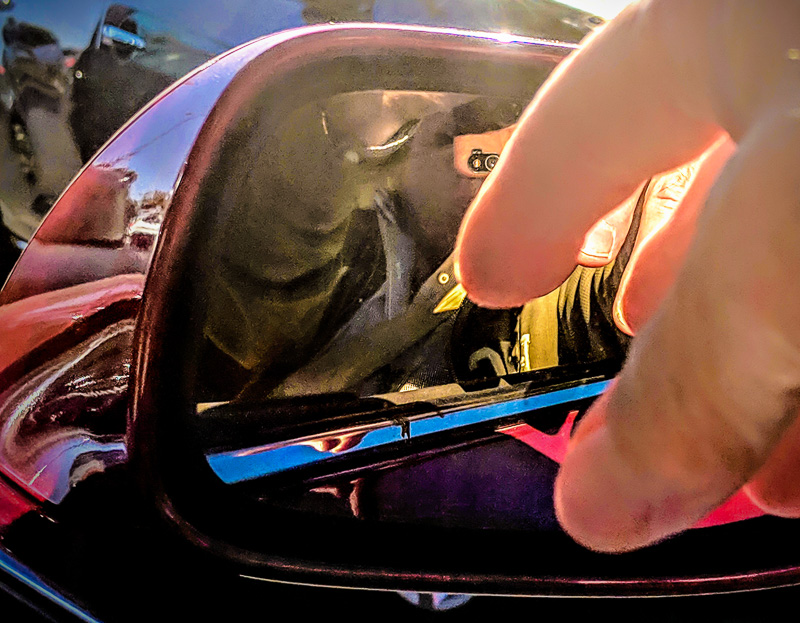
82. A theory of tennis. Seemed intuitively to sense that it was a matter not of reduction at all, but—perversely—of expansion, the aleatory flutter of uncontrolled, metastatic growth—each well-shot ball admitting of n possible responses, n-squared possible responses to those responses, and on into what Incandenza would articulate to anyone who shared both his [math and tennis] backgrounds as a Cantorian continuum of infinities of possible move and response, Cantorian and beautiful because infoliating, contained, this diagnate infinity of infinities of choice and execution, mathematically uncontrolled but humanly contained, bounded by the talent and imagination of self and opponent, bent in on itself by the containing boundaries of skill and imagination that brought one player finally down, that kept both from winning, that made it, finally, a game, these boundaries of self.
.jpg)
85. Checking into a detox clinic. They gave him slippers of green foam-rubber with smiley-faces embossed on the tops. The detox’s in-patients are encouraged to call these Happy Slippers. The staff refer to the footwear in private as “pisscatchers.”
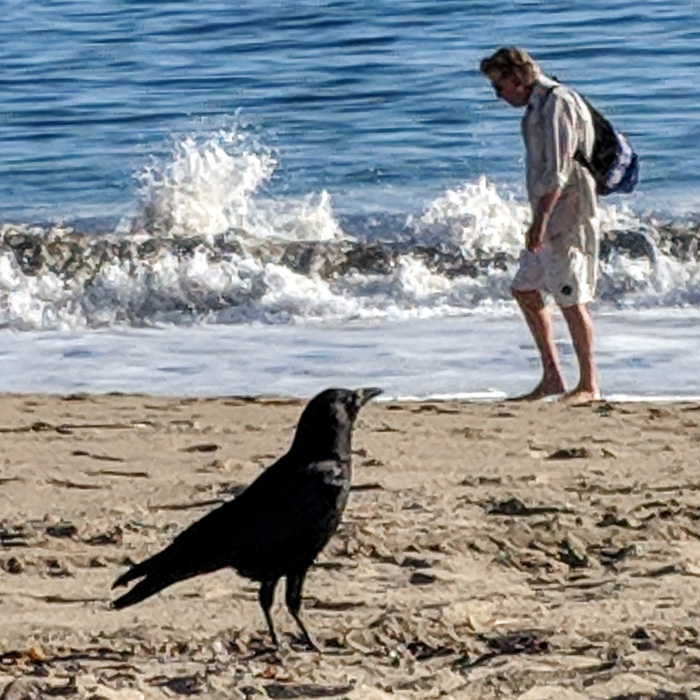
91. A French-Canadian terrorist’s remark. We have, as one will say, larger seafood to cook.’
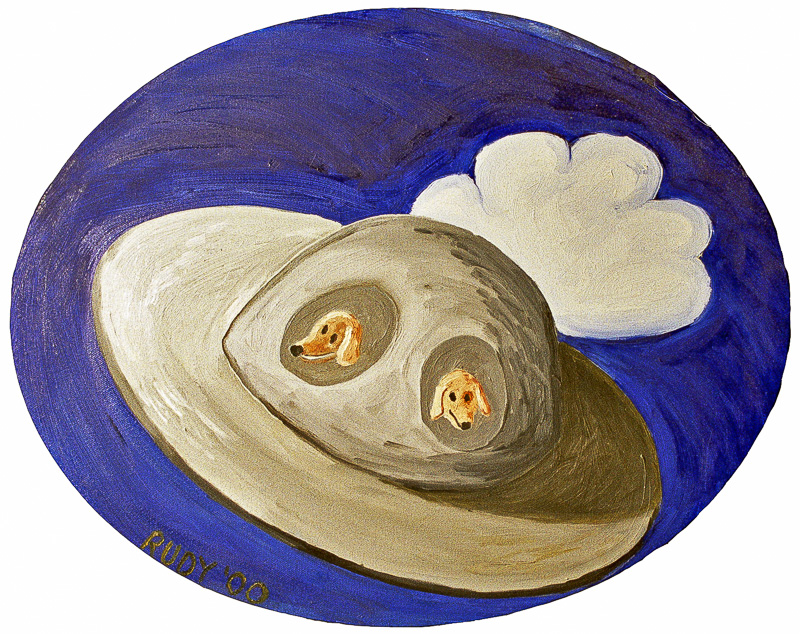
93. Hamsters on a rampage. The expression on the hamsters’ whiskered faces is businesslike and implacable—it’s that implacable-herd expression.

158. Beat Zen & tennis. He knew what the Beats know and what the great tennis player knows, son: learn to do nothing, with your whole head and body, and everything will be done by what’s around you.

170. A nerdy M.I.T. radio station. [The psychedelic drug] DMZ is sometimes also referred to in some metro Boston chemical circles as Madame Psychosis, after a popular very-early-morning cult radio personality on M.I.T.’s student-run radio station WYYY-109, ‘Largest Whole Prime on the FM Band,’
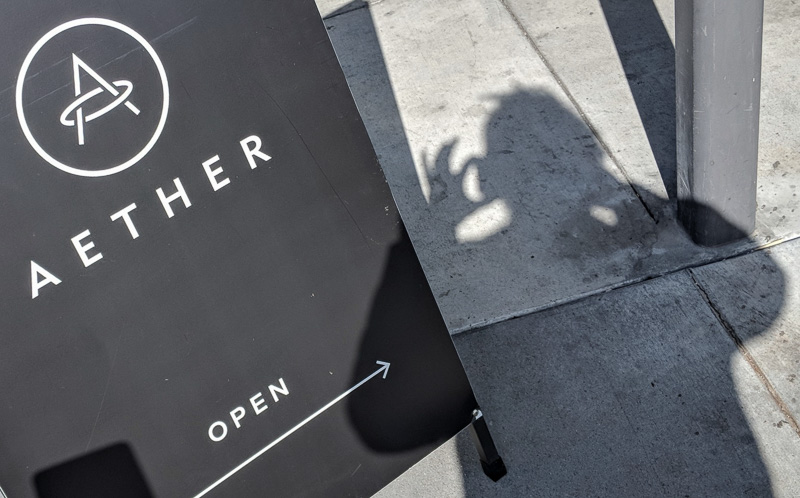
996. A footnote on DMZ. An Italian lithographer, who’d ingested DMZ once, made a lithograph comparing himself on DMZ to a piece of like Futurist sculpture, plowing at high knottage through time itself, kinetic even in stasis, plowing temporally ahead, with time coming off him like water in sprays and wakes.

178. Fop angry at a fellow resident of a recovery home. I respectfully ask that she be kicked out of here on her enormous rear-end. Let her go back to whatever fork-wielding district she came from, with her Hefty bag full of gauche clothes.

179. The previously undocumented da-da-da speech tic. “Alls I know is I put a Hunt’s Pudding Cup in the resident fridge like I’m supposed to at 1300 and da-da-da and at 1430 I come down all primed for pudding that I paid for myself and it’s not there and McDade comes on all concerned and offers to help me look for it and da-da, except if you look I look and here’s the son of a whore got this big thing of pudding on his chin.”

180. Man questioning the validity of a 12-step program. You’re ordering me to pray? Because I allegedly have a disease? I dismantle my life and career and enter nine months of low-income treatment for a disease, and I’m prescribed prayer? Does the word retrograde signify? Am I in a sociohistorical era I don’t know about? What exactly is the story here?’

182. Nerd pain. M.I.T. students tend to carry their own special psychic scars: nerd, geek, dweeb, wonk, fag, wienie, four-eyes, spazola, limp-dick, needle-dick, dickless, dick-nose, pencil-neck; [and] getting your violin or laptop TP or entomologist’s kill-jar broken over your large head by thick-necked kids on the playground…
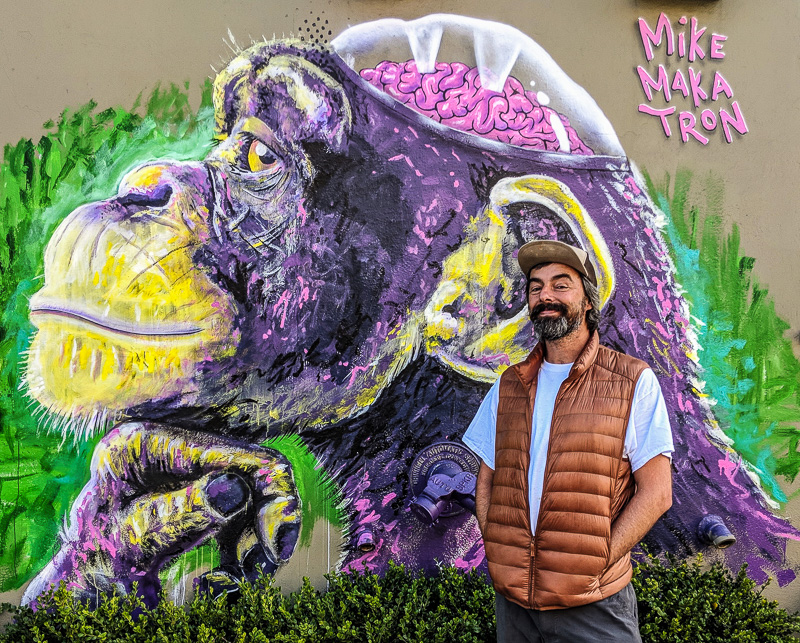
193. More on that M.I.T. radio station. Mario’s still listening to the WYYY nightly sign-off, which takes a while because they not only list the station’s kilowattage specs but go through proofs for the formulae by which the specs are derived.
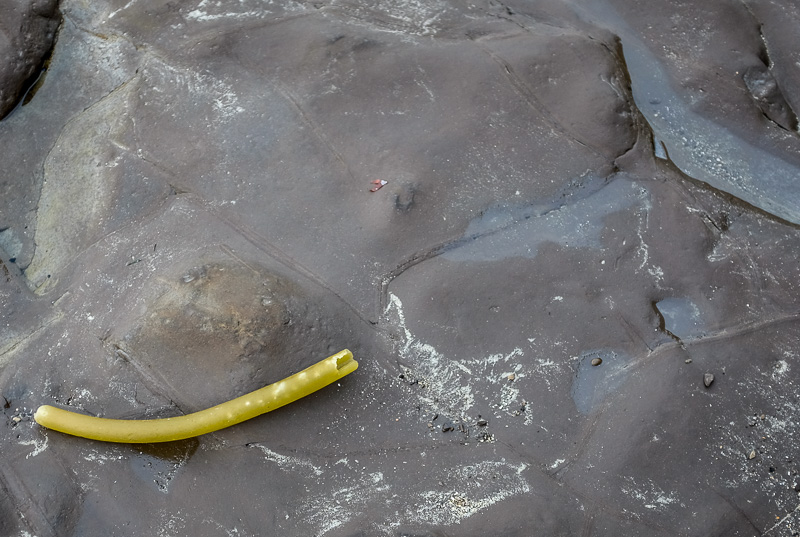
215. A guy scores DMZ from some Canadians. God alone knew where these clowns had acquired thirteen incredibly potent 50-mg. artifacts of the B.S. 1970s. But the good news is they were Canadians, and like fucking Nucksters about almost anything they had no idea what what they were in possession of was worth [Wallace is insanely harsh on Canadians,often calling them Nucks, as in Canuck.], as it slowly emerged. Pemulis, w/ aid of 150 mg. of time-release Tenuate Dospan, almost danced a little post-transaction jig on his way up the steps of the otiose Cambridge bus, feeling the way W. Penn in his Quaker Oats hat in like the 16th century must have felt trading a few trinkets to babe-in-the-woods Natives for New Jersey, he imagines, doffing the nautical cap to two nuns in the aisle.

219. Party’s End. One of the saddest times Joelle van Dyne ever feels anywhere is that invisible pivot where a party ends—even a bad party—that moment of unspoken accord when everyone starts collecting his lighter and date, jacket or greatcoat, his one last beer hanging from the plastic rind’s five rings, says certain perfunctory things to the hostess in a way that acknowledges their perfunctoriness without seeming insincere, and leaves, usually shutting the door. When everybody’s voices recede down the hall. When the hostess turns back in from the closed door and sees the litter and the expanding white V of utter silence in the party’s wake.

221. Joelle prepares to OD on crack, in lovely rain. She likes the wet walk for this, everything milky and halated through her veil’s damp linen, the brick sidewalks of Charles St. unchipped and impersonally crowded, her legs on autopilot, she a perceptual engine, holding the collar of her overcoat closed at her poncho’s neckline in a way that lets her hold the veil secure against her face with a finger on her chin, thinking always about what she has in her purse, stopping in at a discount tobacconist and buying a quality cigar in a glass tube and then a block later placing the cigar inside carefully in among the overflowing waste atop a corner receptacle of pine-green mesh, but keeps the tube, puts the glass tube in her purse, can hear the rain’s thup on tight umbrellas and hear it hiss in the street, and can see droplets broken and regathering on her polyresin coat, cars sheening by with the special lonely sound of cars in rain, wipers making black rainbows on taxis’ shining windshields.

241. Pynchonian description of a power station. [The school] overlooks the steely gray tangle of Sunstrand’s transformers and high-voltage grids and coaxial chokers strung with beads of ceramic insulators, with not one Sunstrand smokestack anywhere in sight but a monstrous mega-ohm insulator-cluster at the terminus of a string of signs trailing in from the northeast, each sign talking with many Ø’s about how many annular-generated amps are waiting underground for anyone who digs or in any way dicks around, with hair-raising nonverbal stick-figure symbols of somebody with a shovel going up like a Kleenex in the fireplace.

272. Our hero Don Gately is in recovery. Gately often feels a terrible sense of loss, narcotics-wise, in the A.M., still, even after this long clean. His sponsor over at the White Flag Group says some people never get over the loss of what they’d thought was their one true best friend and lover; they just have to pray daily for acceptance and the brass danglers to move forward through the grief and loss, to wait for time to harden the scab.

290. A beatiful Southern girl. The big hair was red-gold and the skin peachy-tinged pale and arms freckled and zygomatics indescribable and her eyes an extra-natural HD green.
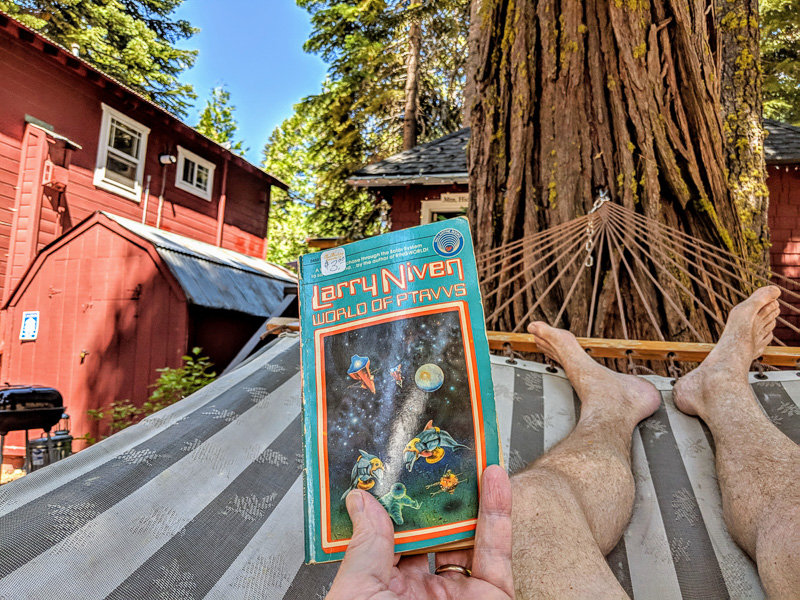
345. An addict’s career in a nutshell. Fun with the Substance, then very gradually less fun, then significantly less fun because of like blackouts you suddenly come out of on the highway going 145 kph with companions you do not know,

348. Worries that twelve-step groups might be cultish scams. [Was it] a cover for some glazed and canny cult-type thing where they’ll keep you sober by making you spend twenty hours a day selling cellophane cones of artificial flowers on the median strips of heavy-flow roads.

351. A recovering Irishman rejoices at having a normal bowel movement. “T’were a tard in t’loo. A rail tard. T’were farm an’ teppered an’ aiver so jaintly aitched. T’luked… conestroocted instaid’ve sprayed. T’luked as ay fel’t’in me ’eart Good ’imsailf maint a tard t’luke. Me friends, this tard’o’mine practically had a poolse.”

354. The long-term-sober AA crew. The old ruined grim calm longtimers in [the] White Flag [group], ‘The Crocodiles’ the less senior White Flaggers call them, because the old twisted guys all tend to sit clustered together with hideous turd-like cigars in one corner of the Provident cafeteria under a 16 x 20 framed glossy of crocodiles or alligators sunning themselves on some verdant riverbank somewhere, with the maybe-joke legend OLD-TIMERS CORNER somebody had magisculed across the bottom of the photo, and these old guys cluster together under it, rotating their green cigars in their misshapen fingers and discussing completely mysterious long-sober matters out of the sides of their mouths. Gately sort of fears these old AA guys with their varicose noses and flannel shirts and white crew cuts and brown teeth and coolly amused looks of appraisal, feels like a kind of low-rank tribal knucklehead in the presence of stone-faced chieftains who rule by some unspoken shamanistic fiat, and so of course he hates them, the Crocodiles, for making him feel like he fears them, but oddly he also ends up looking forward a little to sitting in the same big nursing-home cafeteria with them and facing the same direction they face, every Sunday, and a little later finds he even enjoys riding at 30 kph tops in their perfectly maintained 25-year-old sedans when he starts going along on White Flag [visits] to other Boston AA Groups.

355. The fates of the guys who don’t stay sober. The Crocodiles talk about how they can’t count the number of guys that’ve Come In for a while and drifted away and gone back Out There and died, or not gotten to die. They even point some of these guys out—gaunt gray spectral men reeling on sidewalks with all that they own in a trashbag—as the White Flaggers drive slowly by in their well-maintained cars. Old emphysemic Francis G. in particular likes to slow his LeSabre down at a corner in front of some jack-legged loose-faced homeless fuck who’d once been in AA and drifted cockily out and roll down his window and yell ‘Live it up!’
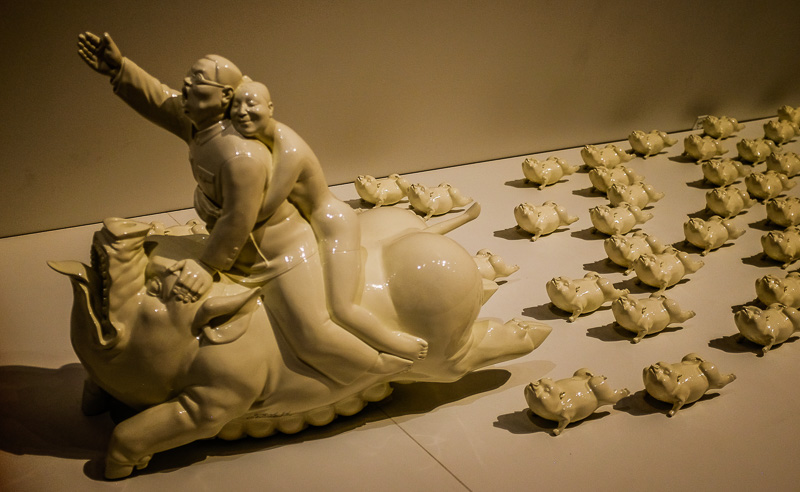
445. Metaphor for the ubiquitous presence of the One. This wise old whiskery fish swims up to three young fish and goes, ‘Morning, boys, how’s the water?’ and swims away; and the three young fish watch him swim away and look at each other and go, ‘What the fuck is water?’ and swim away.

449. Gately’s cool nightmare. And his dreams late that night … seem to set him under a sort of sea, at terrific depths, the water all around him silent and dim and the same temperature he is.

464. Gately applying to live in the recovery house. Gately scratched at her dog’s stomach and said he wasn’t sure if he was desperate about anything except wanting to somehow stop getting in trouble for things he usually afterward couldn’t even remember he did them.

824. Colorful character in the recovery house. The limbo man. He drank half a liter of Cuerva at some … Interdependence Day office party and everything like that and got in some insane drunken limbo-dance challenge with a rival executive and tried to like limbo under a desk or a chair or something insanely low, and got his spine all fucked up in a limbo-lock, maybe permanently: so the newest new guy scuttles around the Ennet House living room like a crab, his scalp brushing the floor and his knees trembling with effort.
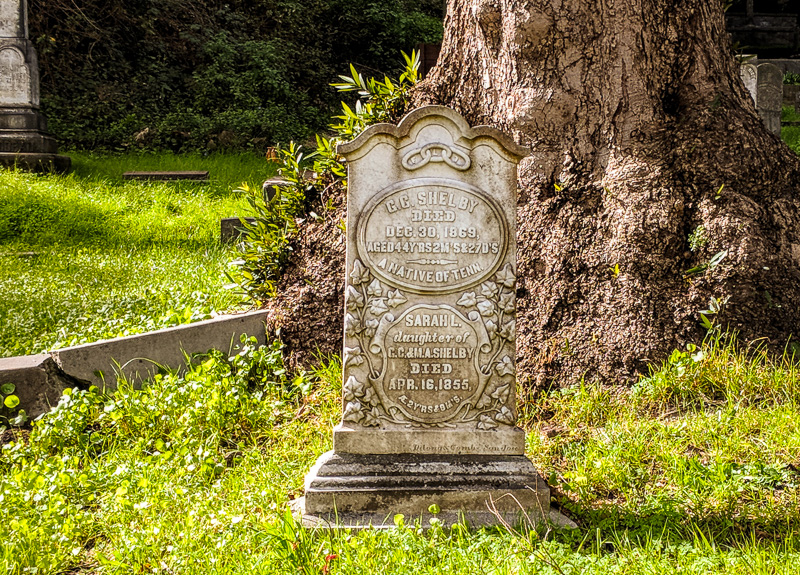
855. Noobs respecting Crocodiles. Newly sober people are awfully vulnerable to the delusion that people with more sober time than them are romantic and heroic, instead of clueless and terrified and just muddling through day-by-day like everybody else in AA is (except maybe the fucking Crocodiles [The very long-term sobriety people sitting in the rear corner of the meeting]).

860. Homily. It’s a gift, the Now: it’s AA’s real gift: it’s no accident they call it The Present.

980. Book ends with flashback to Gately’s last binge. Someone shoots him up with an opiate called Sunshine.The air in the room got overclear, a glycerine shine, colors brightening terribly. If colors themselves could catch fire. … The very air of the room bulged. It ballooned. … Gately felt less high than disembodied. It was obscenely pleasant. … As the floor wafted up and C’s grip finally gave, the last thing Gately saw was a [guy] bearing down with [a] held square and he looked into the square and saw clearly a reflection of his own big square pale head with its eyes closing as the floor finally pounced. [Final sentence:] And when he came back to, he was flat on his back on the beach in the freezing sand, and it was raining out of a low sky, and the tide was way out. [SUCH a great ending!]
My Reviews of Wallace
I wrote a favorable review of Wallace’s first novel The Broom of the System for The Washington Post Book World in 1987. I was really excited by his work, he seemed like the next generation of cool. A new Pynchon. He was sixteen years younger than me. I hoped he and I might eventually be friends, like I am with a number of SF writers and other underground types.

I liked a lot of Wallace’s essays and stories, too. He developed a great and unique colloquial literary voice, this engaging, conversational modern style, which has in fact influenced me to some extent. And of course Infinite Jest is a masterpiece, a work of genius.
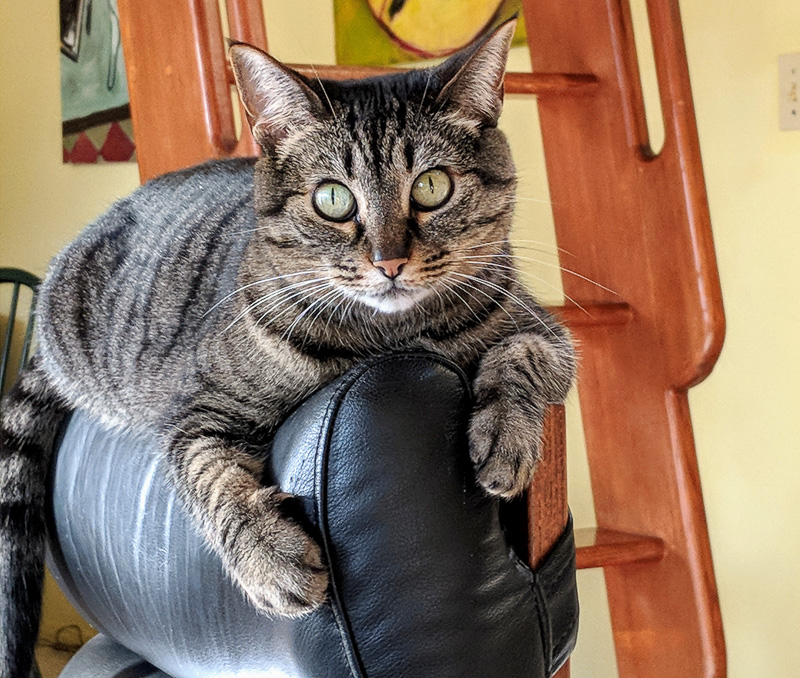
I disliked his 2003 nonfiction book Everything and More: A Compact History of Infinity, which was about transfinite numbers—which is the field in which I got my Ph. D., and which I wrote my best-selling nonfiction Infinity and the Mind about, not to mention my novel White Light.

I felt Wallace didn’t do justice to the material, and that he spoke too slightingly of my hero Georg Cantor and my mentor Kurt Gödel. And I was annoyed at Wallace’s editor for not doing a better job in fact-checking the book, which does have a few glaring mathematical errors. I actually had a chance to tell this to the editor in advance and I wanted to help with the problem, but the guy said, nah, it’s fine like this.

When Science magazine asked me to write about the book, I wrote a harsh review. The review was kind over-the-top, but in a way it was funny, perhaps a bit Wallace-like, and everything I wrote was factual, but I regret it. I now think that Wallace might not have been all that mentally together when he wrote that book, and probably he wrote it on a brutally tight deadline, so I should have cut him more slack.
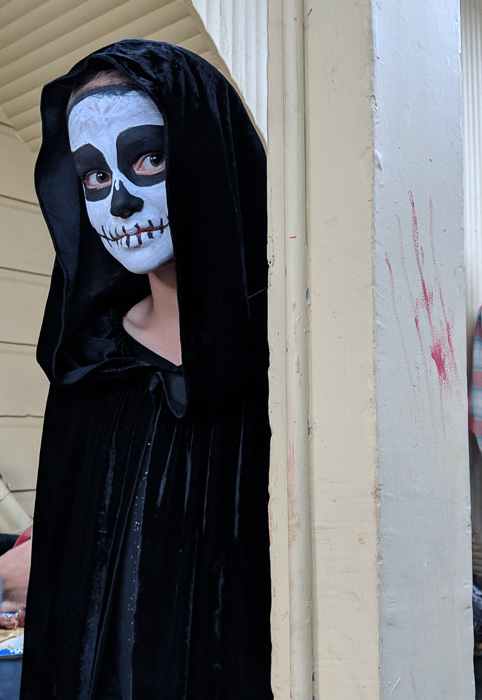
I wish he was still around, still rocking the boat. A suicide like Wallace’s is so hard to understand. Like Vincent van Gogh, or Diane Arbus. A creative genius, at the peak of their career—and they can’t take it. Clinical depression is a bitch. But his work lives on. Infinite Jest is [as Wallace himself might say] like a vast, gnarly, Mandelbrot-set-like fractal, and people can crawl into it and spelunk and space-out and chuckle and root around for many decades to come.









December 27th, 2018 at 2:15 pm
Dear Mr. Rucker,
I am as we speak reading and rereading your oeuvre, and I feel prompted to thank you deeply for your delightful words, and phrases, and paragraphs, adding up to a couple of pages here and there too: sheer M*A*G*I*C*K! Along the way, I also photoglimpsed some wonderful pictures of your hand. I loved them. Wonderful. In my Quabalarium [a Dictionary, but then strictly numerical, navigatable via 4-D Titanium Pinball PageFlippers] this / that all adds up to: Science with Soul, Logic infused with Laughter, and quite frankly also a dazzling avalanche of stuff [Art] I EITHER want to steal and use for myself OR have already done so, the latter case either as explanatory patter / soundtrack / for my magic tricks (thereby hypnotising the spectator irreparably into an alpine, crisp and majestic new mindframe) and/or as the philosophical (philsosophical meaning: eminently practical, thank you) underpinning of my Space Funk Opera in five suites, out-Wagnering Verdi in one single stroke, neatly served up into five sashimi-like portions. Or maybe something completely else that turns up along the Tao. So: Thank You. When DFW committed suicide I wondered: should books from writers who killed themselves get a Health Warning Label / Lenticular?
I still don’t have the answer. But I do know that after asking this question, I lost all interest in DFW, except for feeling sorry for a show off (which was my reading of his Infinite Etc. booklet) And really got into Lenticulars. Overcome, or * be * gone. Kind Regards, Dirk Johan Klanker.